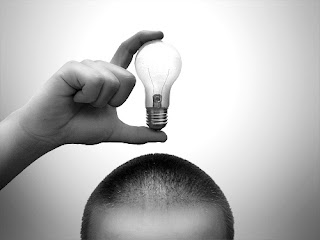
Locke used the word "ideas" in a special that stands in contradistinction to Descartes.
Descartes regarded ideas as intellectual but Locke regarded ideas as something sensory.
Locke proposed that we have an image that is actually a sensory image of that which we think we perceive.
For Locke, thought is in the possession of the images of objects.
The philosophical concept of the idea went in two directions.
On the one hand, Hobbes argued that since all of our knowledge is dependent on the senses, a materialistic dogmatic view of the world should be adopted. Locke however ventured in a different direction.
He used the term "ideas" in a more skeptical or even agnostic sense. He believed that while the senses give us actual knowledge, they also give us limited knowledge and there is no method by which we can determine the underlying nature of the things we are observing in the world.
In other words, Locke concluded that we know the world exists beyond us but we do not know what the world is actually like.
We have an "idea" of what the world is like, but this idea is incomplete.
For example, Locke seemed to be arguing that when we look at a table, we have an inside visual image of that particular table which is shaped by the light and which is imprinted upon the retina in some fashion and which also is transmitted to the brain and this image is called "seeing the table."
According to Locke the table actually exists in the external world but we have only an "image" of the table and our knowledge of the table is limited.

